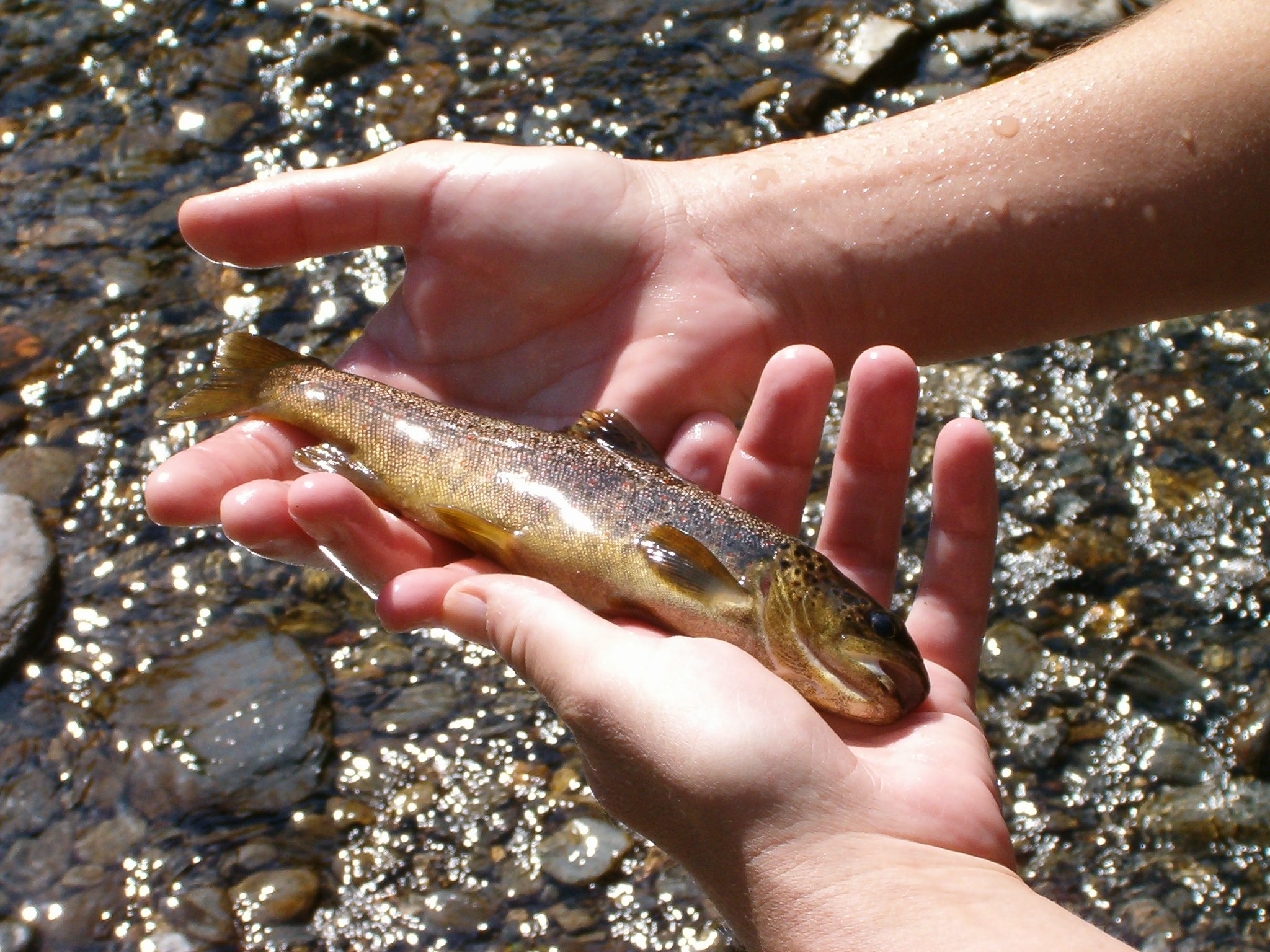Adaptive genomic changes, epigenetic resilience and new molecular tools for the conservation and recovery of Iberian brown trout endemisms (CONSIBERTROMICS) Reference: PID2022-141549OB-I0

Project
Using a genomic approach, the Consibertromics project aims to improve the conservation of native brown trout populations in the Iberian Peninsula.
Brown trout (Salmo trutta) is a native Palearctic cold-water salmonid fish. It is a popular species for angling in Spain and supports an important tourism industry contributing to the maintenance of human communities in mountainous regions. Local managers and anglers are becoming increasingly aware of the need to protect and preserve the native gene pools to ensure the long-time survival of the populations, and hence, of the incomes resulting from their fisheries. Trout populations from South European peninsulas harbour a large portion of the brown trout genetic diversity, due to their continued diversification during Pleistocene climatic changes. In the Iberian Peninsula, trout populations have a complex evolutionary history involving secondary contacts between divergent lineages and,likely, local adaptations as suggested from a high number of genetic endemisms. Four different native S. trutta lineages are found in Spanish rivers: Adriatic (AD), Atlantic (AT), Mediterranean (ME) and Duero (DU), being the latter endemic of the Iberian Peninsula. While a mosaic admixture pattern of the AD and ME lineages is found in most Mediterranean drainages, the AT and DU lineages are parapatrically distributed within the Duero and Miño rivers.
Moreover, compelling evidence indicate the genomic impact of indiscriminate releases of nonnative stocks are determining the decline of native gene pools, that in addition, are coping with the ongoing climate change. The specific objective of this three years research project is to determine the historical adaptive value of genomic divergence among Iberian trout lineages and the role of gene expression and epigenetic patterns on the resilience of trout populations to ongoing environmental changes. Genomic and gene expression approaches are increasingly being applied to address ecological and evolutionary questions in non-model organisms, and particularly to identify relevant variation for adaptation and diversification. In this project, we will use resequencing and Pool-Seq to understand the distribution of adaptive variation regarding environmental and biological parameters, and gene expression analysis (RNAseq and methylome) to understand the functional basis of adaptation of native Iberian trout lineages.
The results of this project will provide information on the adaptive value of the genomic divergences of Spanish brown trout endemisms and its evolutionary and resilience potential to respond to the two major threats (hybrization with non-native stocks and climate change). This information will be used to develop a cost-effective molecular tool to monitor wild specimens, improving current and future management activities addressed to preserve and recover native biodiversity and to maintain the recreational fisheries of the species in Spain.